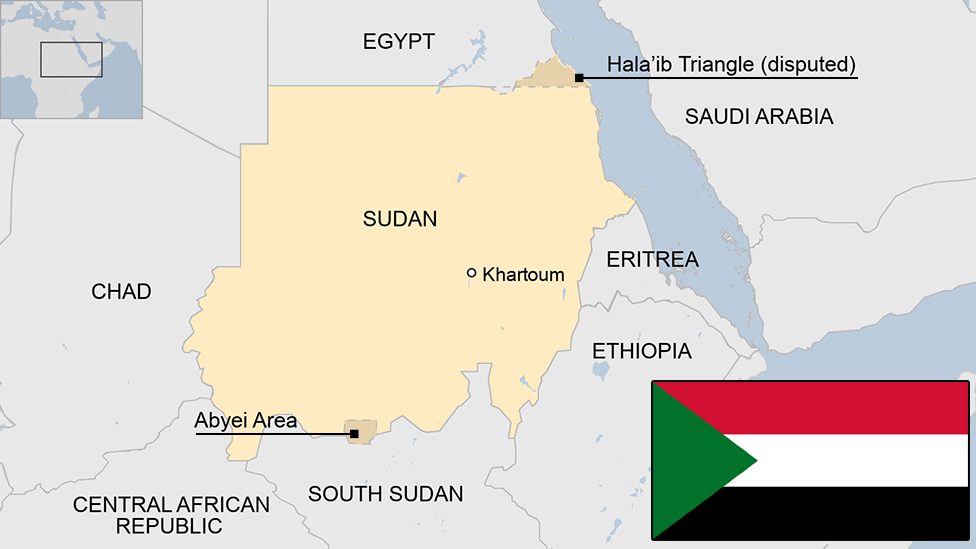Sudan crisis: Security forces 'move against protesters'
- Published
Gunfire can be heard as protesters flee
Sudanese security forces have attacked a pro-democracy protest outside the military headquarters in the capital, Khartoum, activists say.
Gunfire can be heard in video footage, with medical sources saying at least 13 people were killed and dozens hurt.
Sudan has been governed by a Transitional Military Council (TMC) since President Omar al-Bashir was overthrown in a coup in April.
The council denied the main protest site had been broken up using force.
The leaders of the protest movement, who demand that a civilian government take over the running of the country, said they were stopping all contact with the military and called a general strike.
The Central Committee of Sudanese Doctors, which is close to the protesters, said 13 people had been killed and that there was a "large number of critical casualties".
What happened at the protest sites?
Activists say the security services moved on the main protest site early on Monday.
But TMC spokesman, Lt Gen Shams al-Din Kabbashi, said the security forces had moved towards a location near the main protest site which had "long been a hotbed of corruption and negative practices".
"Sudanese forces did not disperse the sit-in outside the army headquarters by force, but rather targeted a nearby area which has become a threat to the safety of citizens," he told UAE-based Sky News Arabia TV channel.
"The tents are still there and the youth are moving there freely," he added, saying that many protesters had "preferred to leave the sit-in".
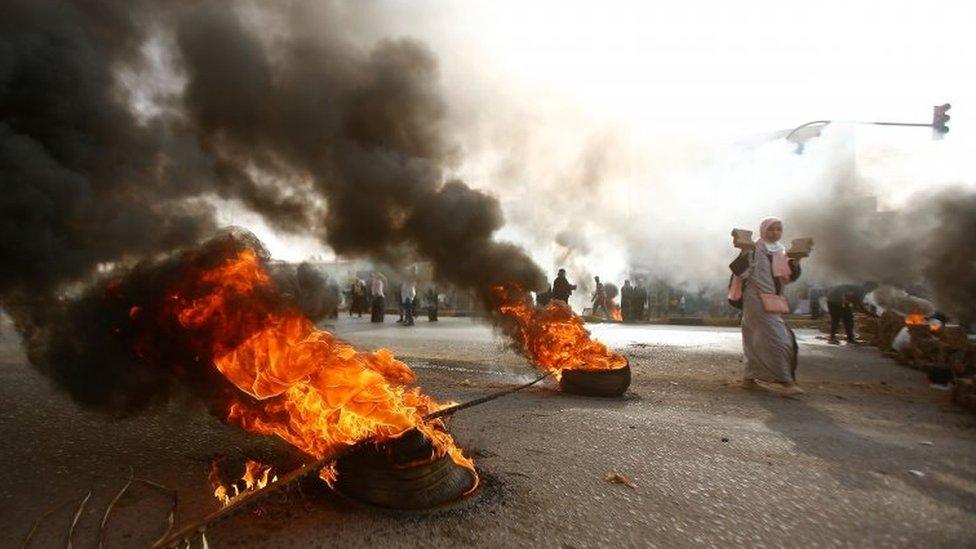
Protesters set ablaze tyres to try to stop Sudan's security forces
The Sudanese Professionals Association (SPA), which is spearheading nationwide protests, said it was suspending all communication with the TMC, calling for a campaign of "sweeping civil disobedience to topple the treacherous and killer military council".
Journalist Benjamin Strick, who specialises in verifying footage on Twitter, has shared dramatic videos from Khartoum, where repeated gunfire could be heard.
Allow X content?
This article contains content provided by X. We ask for your permission before anything is loaded, as they may be using cookies and other technologies. You may want to read X’s cookie policy, external and privacy policy, external before accepting. To view this content choose ‘accept and continue’.

Some Khartoum residents blame the notorious paramilitary unit known as the Rapid Support Forces.
It was set up to help keep Mr Bashir in power and has its roots in the Darfur conflict in western Sudan, which began in 2003. Then known as the "janjaweed", this militia carried out frequent massacres.
Meanwhile, the US embassy in Sudan said attacks by Sudanese security forces on protesters must stop.
Allow X content?
This article contains content provided by X. We ask for your permission before anything is loaded, as they may be using cookies and other technologies. You may want to read X’s cookie policy, external and privacy policy, external before accepting. To view this content choose ‘accept and continue’.

Speaking to the BBC, the UK Ambassador to Sudan, Irfan Siddiq, described it as a "hugely worrying and negative development", and that he was woken by the sound of heavy gunfire.
"I feared that this is what many had been warning of for some time, that there would be an attempt by the security forces to forcibly disperse the protest site, and it seems that's what's happened now, with a lot of casualties."
The African Union has strongly condemned the violence, calling for an immediate and transparent investigation.

'People power' takes big hit
Analysis by Tomi Oladipo, BBC's Africa security correspondent
It is back to square one for Sudan's political process. The hardening stances that stalled the talks between the protest groups and the TMC have been further cemented on both sides.
Expect more resolute protests and a possibly even more ruthless crackdown from the men in uniform. It is the latter who are governing right now. What matters is which faction of the security forces has the upper hand in the TMC.
The hardliners, particularly the Rapid Support Forces - led by the deputy head of the regime, Mohamed "Hemeti" Hamdan Dagalo - appear to be leading the way and could display more ruthlessness than has been seen so far.
There has been a total lockdown in Khartoum, indicating something has shifted within the regime. "People power" is taking a big hit, but protesters could be willing to take greater risks to force the military's hand, if possible.

What's the background?
The demonstrators have been occupying the square in front of the military headquarters since 6 April, five days before Mr Bashir was overthrown.
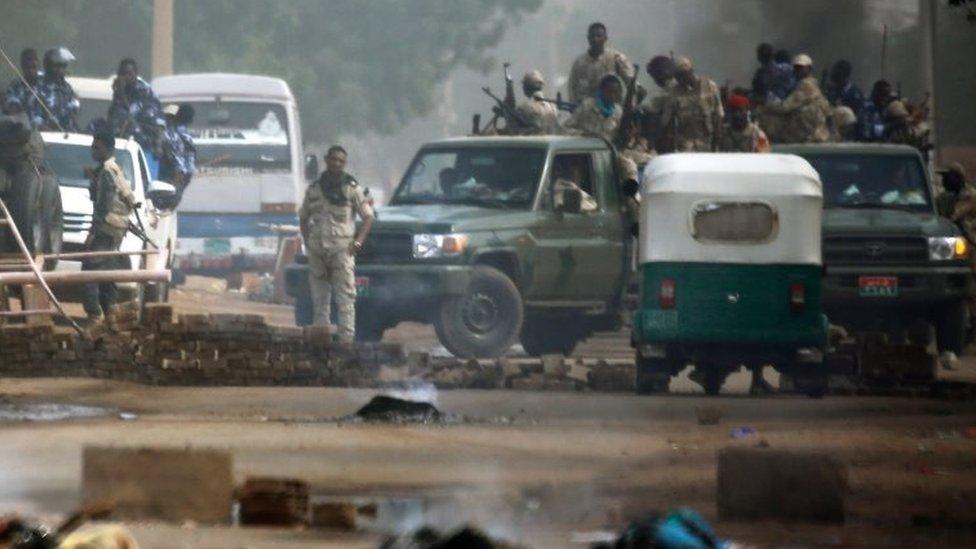
Sudanese security forces have been seen deploying around Khartoum's army headquarters
Last month, organisers and the ruling generals announced they had agreed on the structure of a new administration and a three-year transition period to civilian rule.
But they still need to decide on the make-up of what has been called the sovereign council, which will be the highest decision-making body in the transition period.
They cannot agree on whether civilians or the military should have the majority of positions.

Road to transition

19 December 2018 - Protests erupt after fuel and bread price rises announced
22 February 2019 - President Bashir dissolves the government
24 February - Protests continue as security forces respond by firing live bullets
6 April - Activists begin sit-in at military headquarters, vowing not to move until Mr Bashir steps down
11 April - army generals announce that Mr Bashir has been toppled but sit-in continues as people demand civilian rule
20 April - Talks between the military rulers and civilian representatives begin
13 May - Shooting outside the military headquarters leaves six people dead
14 May - Military and civilians announce a deal on a three-year transition period
16 May - Talks postponed as military demands some barricades are removed
3 June - Activists announce the suspension of talks with the military, accusing them of using force to disperse their sit-in
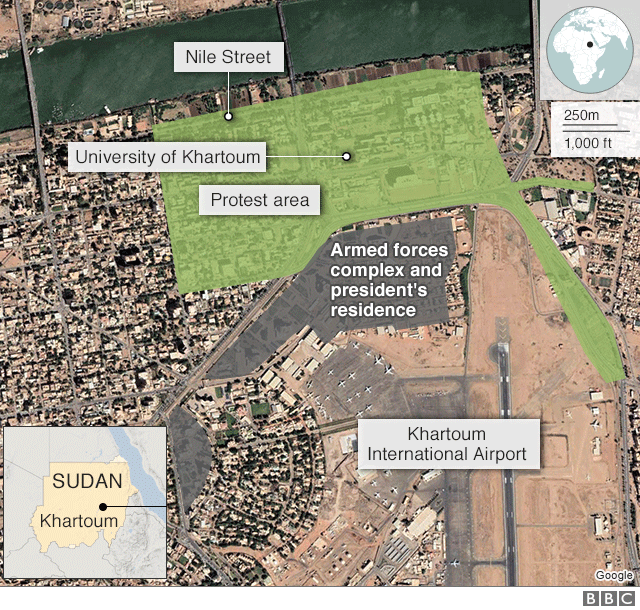

Are you in the area? If it is safe to do so, please share your experiences by emailing haveyoursay@bbc.co.uk, external.
Please include a contact number if you are willing to speak to a BBC journalist. You can also contact us in the following ways:
WhatsApp: +447555 173285
Tweet: @BBC_HaveYourSay, external
Send pictures/video to yourpics@bbc.co.uk, external
Send an SMS or MMS to 61124 or +44 7624 800 100
Please read our terms and conditions and privacy policy
- Published3 June 2019
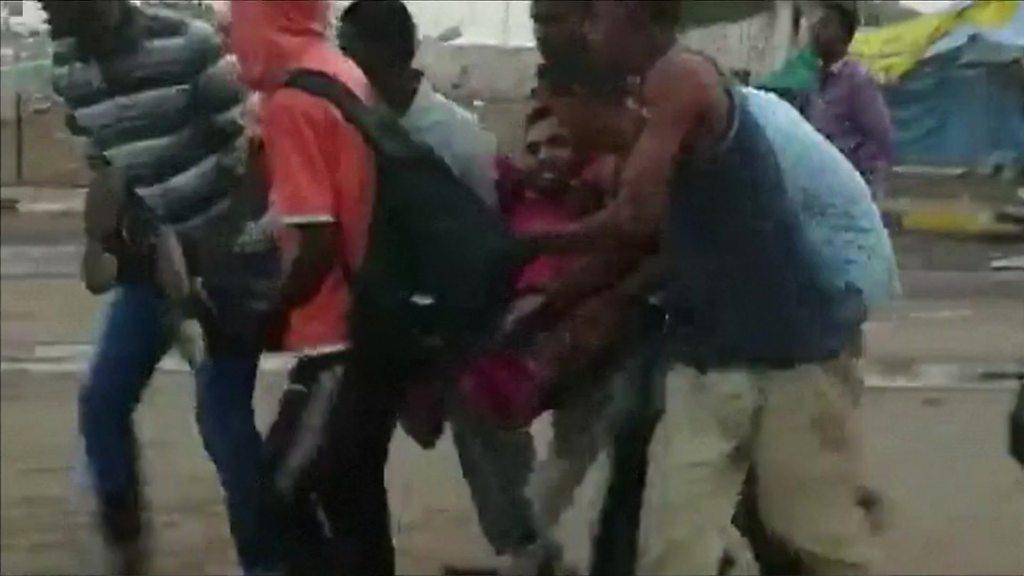
- Published3 June 2019
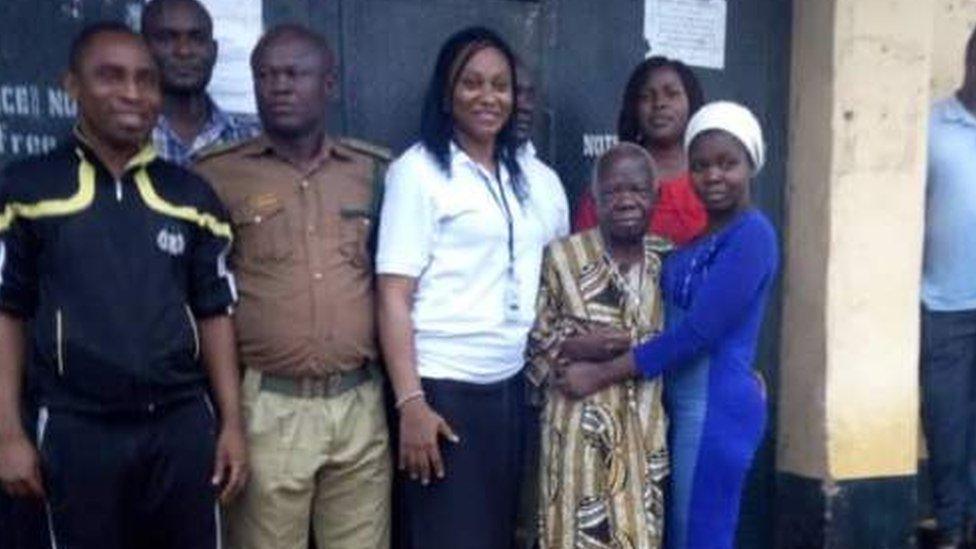
- Published14 May 2019
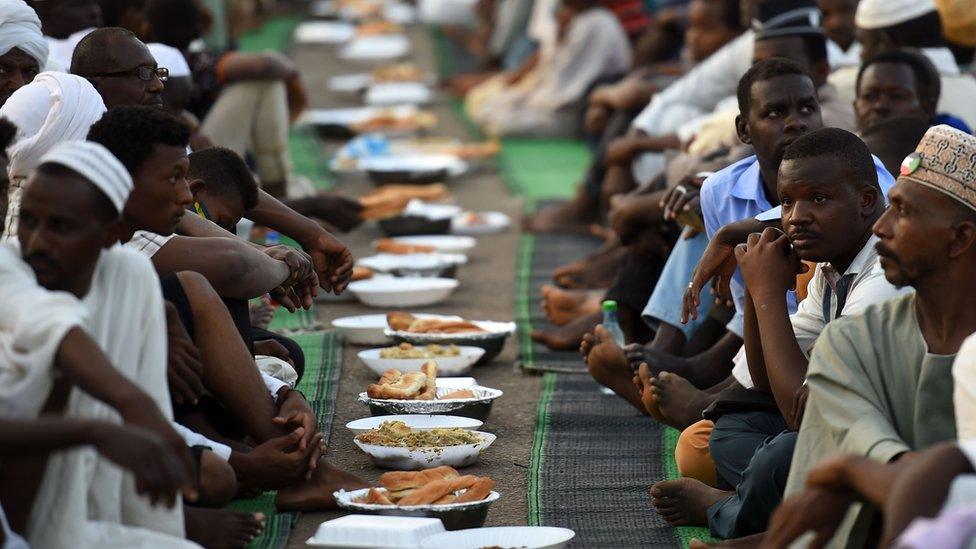
- Published18 January 2019
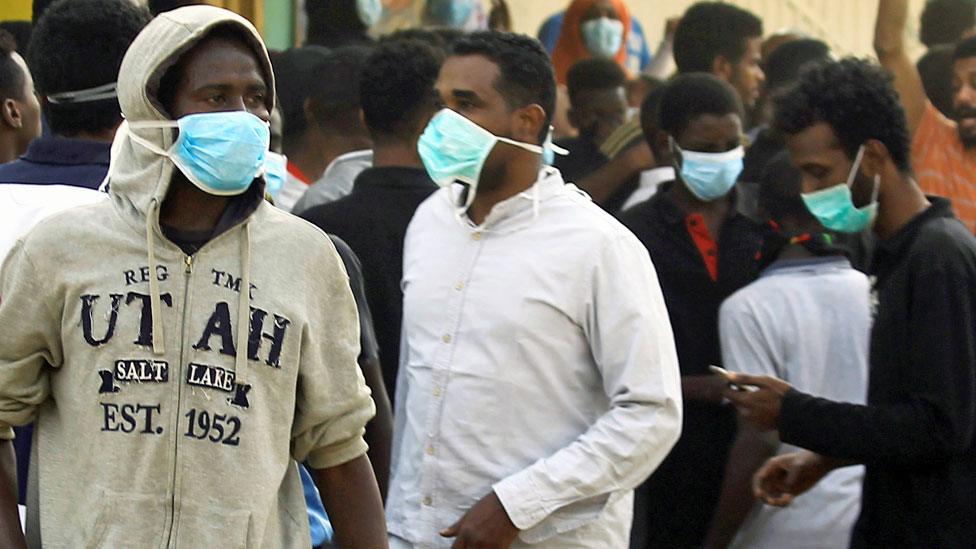
- Published5 May 2019
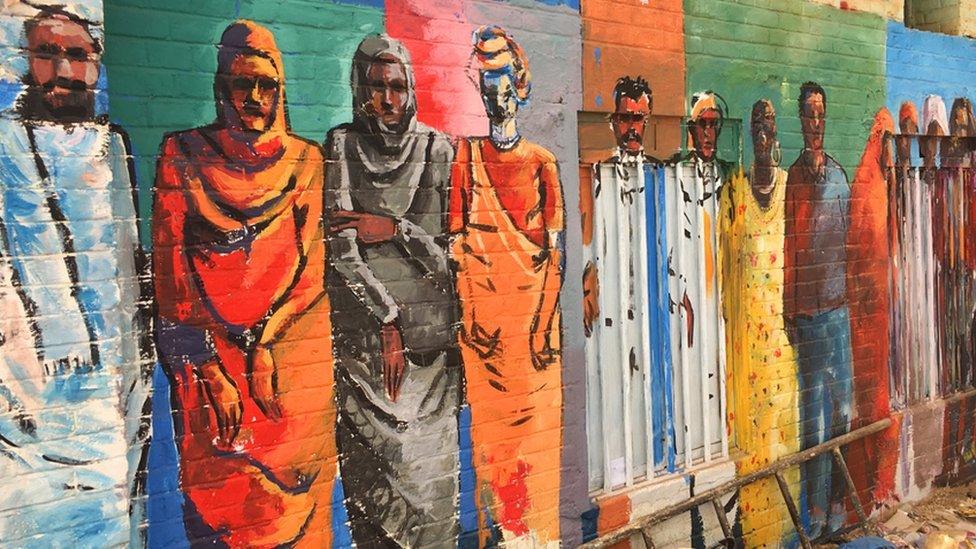
- Published14 August 2019
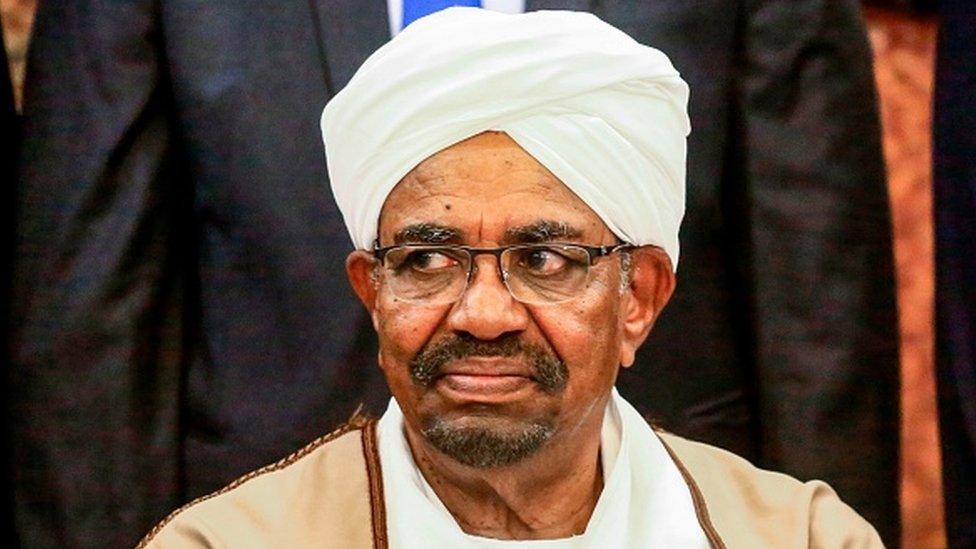
- Published13 September 2023
